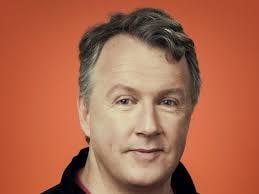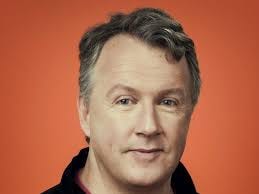Paul Graham - how to be original (#71)
The link between curiosity + originality; how to get better ideas; how to find better questions to ask
To do great work, argues writer and entrepreneur Paul Graham, you need to nail four things:
Four steps: choose a field, learn enough to get to the frontier, notice gaps, explore promising ones. This is how practically everyone who's done great work has done it, from painters to physicists.
Graham would know. In addition to studying great work, he’s done it for 30+ years.
In the 90s, Graham, whom I’ve written about before, cofounded Viaweb, the precursor to the Yahoo! Store. After selling that to Yahoo! for ~$50 million, Graham cofounded Y-Combinator—the first-of-its kind startup incubator, and a launching pad for companies like Airbnb and Dropbox, unofficially anointing Graham, the godfather of startups. Now, Graham writes on startups, technology, and life.
In a recent essay1 entitled: How To Do Great Work—one on the best essays I’ve ever read—he expands on the four steps. Interestingly, it’s the first step, choosing what to work on, that turns out most important. What Graham calls, “the key to the whole game.”
And it’s the subject of today’s OGT.
Tools for originality
There are a bunch of challenges to finding what to work on.
It’s going to, for example, have to be something that both you are suited to work on and is extremely interesting to you. “When in doubt,” Graham says, “optimize for interestingness… If you're interested, you're not astray.”
But, if it’s going to be truly great, it’s going to also have to be new, i.e. original. For that, Graham has some pointers. One is that it’s much easier to think of ideas in the context of a problem, than just generating them in general.2
You're much more likely to have original ideas when you're working on something. Original ideas don't come from trying to have original ideas. They come from trying to build or understand something slightly too difficult.
This, Graham says, can be shown in writing. “When you try to put ideas into words,” he says, “a missing idea creates a sort of vacuum that draws it out of you.”
Lastly, he advises movement—both literally and conceptually.
Changing your context can help. If you visit a new place, you'll often find you have new ideas there…But you may not have to go far to get this benefit. Sometimes it's enough just to go for a walk.
It also helps to travel in topic space. You'll have more new ideas if you explore lots of different topics, partly because it gives the angle grinder more surface area to work on, and partly because analogies are an especially fruitful source of new ideas.
Finding great questions
Originality in choosing problems seems to matter even more than originality in solving them.
So the questions are critical. And the way to find great questions is through a particular subset of originality: curiosity.
Curiosity is itself a kind of originality; it's roughly to questions what originality is to answers. And since questions at their best are a big component of answers, curiosity at its best is a creative force.
Few grasp this. One of the biggest misconceptions about new ideas is about the ratio of question to answer in their composition. People think big ideas are answers, but often the real insight was in the question.
So if the real insight is in the question, and curiosity leads to great questions, then curiosity, it seems, is actually the driver of great work.
But how do you find original, interesting questions?
the best way to acquire new questions is to try answering existing ones. Questions don't just lead to answers, but also to more questions
And there, again, Graham advises breadth over depth.
It's better to be promiscuously curious — to pull a little bit on a lot of threads, and see what happens. Big things start small. The initial versions of big things were often just experiments, or side projects, or talks, which then grew into something bigger. So start lots of small things…Being prolific is underrated.
Finally, Graham says that it can be an advantage if you’re curiosity brings you to unfamiliar territory. That’s because it allows you to see things with fresh eyes.
When you're learning about something for the first time, pay attention to things that seem wrong or missing. You'll be tempted to ignore them, since there's a 99% chance the problem is with you.,, When you've gotten further into the subject, come back and check if they're still there.
If they're still viable in the light of your present knowledge, they probably represent an undiscovered idea.
The OGT: Explore widely, pose and answer interesting questions
I’m currently reading James Gleick’s Isaac Newton, and I was shocked to find that Graham’s prescription is essentially Newton’s model.
When he was a late teen and 20-something, Newton read widely on sciences, maths (as the Brits say), art, and philosophy, trying to find, similar to Einstein, some sort of connective tissue holding it all together.
But—and this is Graham’s key advice—Newton was a very active reader, searching for both understanding and holes that perhaps he could fill in.
As he read, he’d outline an idea from say Descartes or Galileo or Hook, and he’d then highlight all of the potential inconsistencies or gaps in their theories. Under the Latin heading, “Quaestiones quaedam philosophicae” (Certain philosophical questions), he would then list all of the questions and try to answer them, exactly as Graham suggests.
One criticism of Newton, outside of being a bit of a shut-in, is that he allowed his interests to take him too far afield. He did, after all, spend maybe two decades of his life focusing exclusively on theology and alchemy. But I wonder if that criticism is still misled.
Might this alternative study—out there as it was—somehow have unlocked his later discovery of the laws of motion? Perhaps. As Graham acknowledges in his essay, and Seth Godin is fond of saying, you have to have a lot of bad ideas to get good ones.
Anyway, I was so inspired by the connection between Graham’s essay, and Newton’s process, that I recently started, not an ideas or thoughts note in my phone (as I have hundreds), but a questions note.3
Do you have hard questions nagging at your mind? You should probably start writing them down.
Who knows, maybe you’ll be the next Newton.
if you haven’t read Graham’s essays, and you are at all into business, art, philosophy, or thinking—you should take a gander, and thank me later.
This is 100% true. The amount of ideas I get while writing a post, book, or comedy bit, or working on an aspect of my business, is 10x what just comes outside of that. This is related to the idea that working within constraints, or a set of rules, is, in some ways, easier, as it produces more focus, and allows you to do more with less.
I use Evernote






